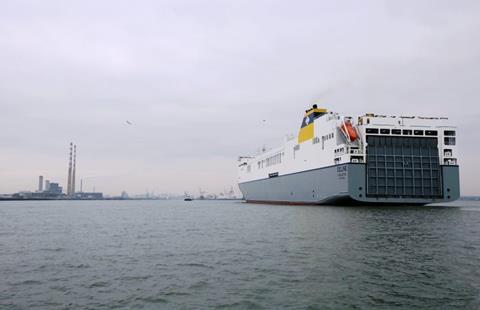Shortsea shipping specialist CLdN is offering a pooling service to allow shipping industry stakeholders to meet more rigorous EU environmental regulations.

It comes in response to FuelEU Maritime (FEM) compliance, which aims to reduce greenhouse gas (GHG) emissions in the maritime sector by encouraging the use of renewable and low-carbon fuels. However, this regulation – which came into effect in January 2025 – brings with it higher fuel costs. Biofuels cost 50-150 percent more than conventional fossil fuels, according to CLdN.
“Biofuels are significantly more expensive and present procurement challenges for companies that do not have the ability to bunker biofuels or are irregularly sailing in EU waters,” said Jasper Meireman, head of shipping operations at CLdN.
“The financial penalties for not meeting the requirements of FEM are significant. For example, a Capesize vessel sailing from South America to Rotterdam, would incur penalties of some USD50,000 should the vessel not be fuelled with the required tonnage of biofuel to meet the regulatory requirements,” he added.
Companies are allowed to pool the performances of different ships, using the over-performance of a ship to compensate the under-performance of others, provided that the total pooled compliance is positive, helping to avoid such penalties. CLdN said this not only creates the opportunity to reward over-compliance but also provide incentives for investment in more advanced technologies.
In June 2024, HLPFI reported that CLdN and Transfennica were to boost connectivity through Zeebrugge, Belgium.
















